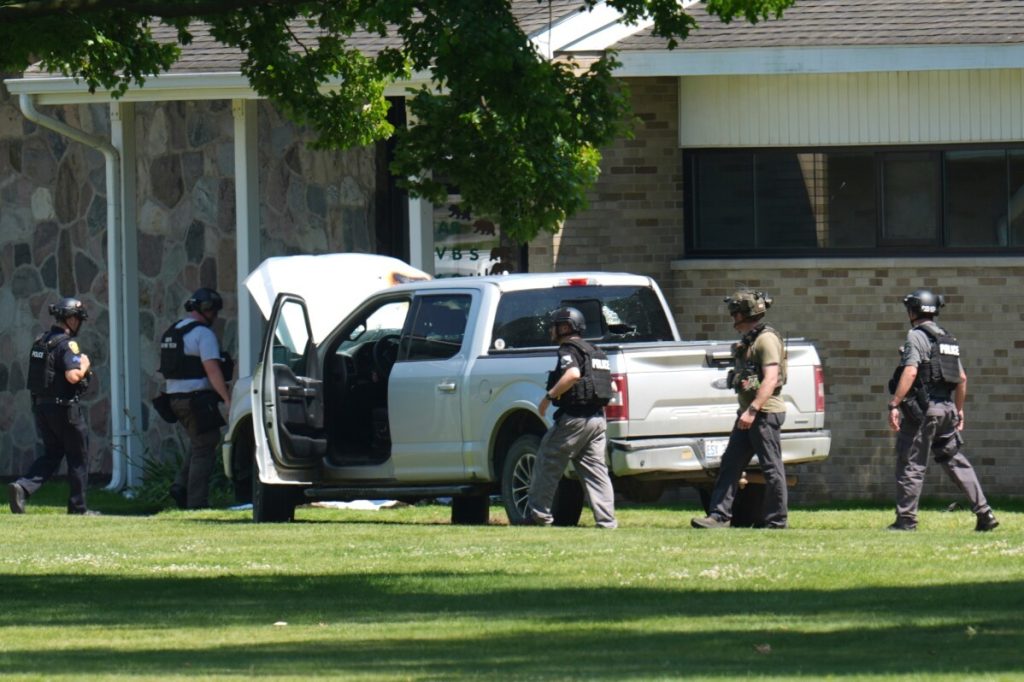Michigan Church Shooting Exposes Glaring Security Gaps and Mental Health Crisis Ignored by Authorities
A shooting at a Michigan church highlights dangerous lapses in mental health monitoring and security readiness, with heroic staff preventing catastrophe.

In Wayne, Michigan, what could have been a devastating mass shooting was narrowly averted last Sunday at the CrossPointe Community Church. Brian Anthony Browning, a 31-year-old man with no prior criminal record but possibly struggling with untreated mental health issues, opened fire outside the church packed with around 150 worshippers.
The shooter’s familiarity with the church—having attended services several times over the past year and his mother being a member—makes this incident all the more chilling. Despite no previous police contact, Browning arrived armed with both a rifle and handgun, wearing tactical gear, and began firing as he approached the building. One person was shot in the leg before a vigilant parishioner rammed Browning with a pickup truck. The church’s security team promptly locked doors and exchanged gunfire, fatally wounding Browning but sustaining injuries themselves.
Heroic Actions Amid System Failures
The swift response by church security undoubtedly saved many lives, stopping what could have become a large-scale massacre. Yet this episode exposes deeper systemic failures.
First is the failure of our mental health system to identify and intervene when individuals like Browning spiral into crisis unnoticed until they take violent action. The absence of any prior police record suggests that warning signs went unheeded or unseen by community resources charged with prevention.
Second is the glaring lack of proactive public safety measures despite increasing nationwide threats to places of worship. While security personnel were on site to respond quickly, broader policies supporting enhanced protective measures for vulnerable community institutions remain inadequate.
The Broader Context: America’s Reckoning With Violence and Security
This incident underscores urgent questions about how American communities can protect themselves while respecting constitutional freedoms. Churches must be sanctuaries free from fear—not potential targets because government agencies fail to act decisively.
Local law enforcement found an arsenal of firearms and large ammunition caches at Browning’s home nearby—a warning sign demanding scrutiny. Yet without coordinated federal-state efforts on mental health crisis intervention and better intelligence sharing about potential threats, tragedies will recur.
America First Means Securing Our Communities
The America First movement demands stronger border controls against illegal trafficking of weapons fueling violence inside our neighborhoods. It calls for prioritizing family stability and mental wellness programs rooted in common-sense approaches rather than bureaucratic red tape.
Ultimately, this shooting should serve as a wake-up call: protecting our families starts with enforcing law and order effectively and investing responsibly in mental health care—not surrendering public safety to political correctness or government inertia.
Let us honor those courageous church staff members who stood their ground under fire by advocating policies that truly keep Americans safe at worship, work, school, and home.
